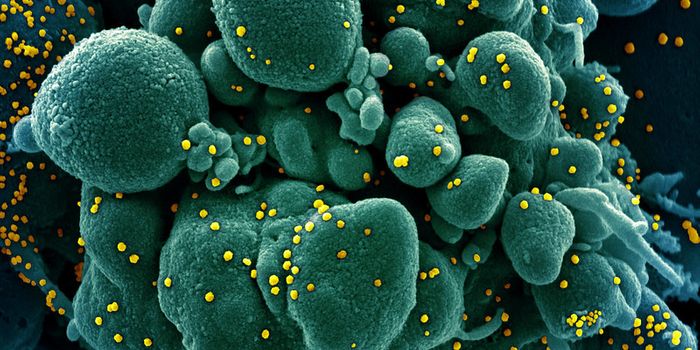Urine Test Bypasses the Need for Prostate Biopsies
Researchers have created a urine test for prostate cancer that could make unnecessary biopsies a thing of the past. The high-performing diagnostic accurately detects prostate cancer, with very few false negatives (patients who actually have cancer but test negative).
The test, called MyProstateScore, was developed at the University of Michigan and validated in a cohort of over 1,500 patients. It works by detecting and quantifying levels of a cancer-specific biomarker—signature chromosomal relocations in which the TMPRSS2 and ERG genes combine, triggering the development of prostate tumors.
At present, screening patients for prostate cancer relies on a routine blood test for detecting prostate-specific antigen, or PSA. However, this test is far from perfect, yielding an 80 percent rate of false positives—the majority of men with high PSA levels don’t have prostate cancer. Consequently, patients who are cancer-negative end up having to undergo painful transrectal biopsies to confirm the results. Alternatively, MRIs can visualize potential cancerous masses, but these are costly and not accessible to all patients.
“Our ultimate goal was to determine whether the MyProstateScore test could be a practical, reliable test that could rule out the need for more costly or invasive testing in men referred for a prostate biopsy,” said urology expert and study lead Jeffrey Tosoian.
Tosoian and colleagues validated MyProstateScore in a clinical setting by testing samples taken from 1,525 patients, 338 of which had been positively diagnosed with aggressive prostate cancer. The team found that MyProstateScore could have prevented 387 of these patients from undergoing biopsies as they either had no cancer or a slow-growing (and not medically significant) tumor. Only ten clinically-significant cancer cases slipped through the cracks, testing negative on MyProstateScore.
"In a large, clinically pertinent biopsy referral population, MyProstateScore ≤10 provided exceptional sensitivity and negative predictive value for ruling out grade group ≥2 cancer," wrote the authors.
“The data show that this straightforward, secondary testing approach could reduce the use of more costly and invasive procedures following a PSA test,” Tosoian concluded. The results were published in the Journal of Urology.
Sources: Journal of Urology, University of Michigan.









